Our team represents a diverse set of backgrounds. Learn more about our team members below.
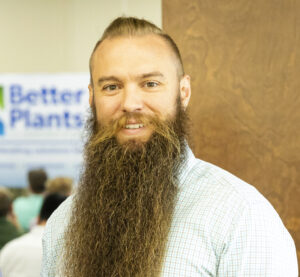 | Thomas Wenning is a program manager for industrial energy efficiency at the U.S. Department of Energy’s Oak Ridge National Laboratory (ORNL). Mr. Wenning manages ORNL’s domestic and international industrial energy efficiency technology assistance and deployment activities. He supports the DOE’s Better Buildings, Better Plants program and the Federal Energy Management Program by providing industrial sites with technical assistance activities, energy assessments and training, and energy management guidance. Under Mr Wenning’s leadership, the DOE’s Better Buildings, Better Plants program has grown to 240+ industrial partners and is generating over $8.2B and 2.4 QBtu in cumulative energy savings; 60+ Better Plants partners have achieved their long-term goals ahead of schedule. In addition, Mr. Wenning manages is leading the DOE’s effort to modernize their energy-system software tool suite and associated training resources. The chief of these is the open-source MEASUR software suite which has had over 25,000 downloads and is helping industry save millions of dollars in energy savings. Mr Wenning has led numerous international industrial energy efficiency workshops, trainings, and assessments on behalf of the DOE. Mr. Wenning is a registered Professional Engineer, a Certified Practitioner in Energy Management Systems, an SEP-Performance Verifier, and a DOE Qualified Specialist in the areas of steam, pumps, and fans. Finally, Mr Wenning has been internationally recognized by the Alliance to Save Energy with their “2018 Rising Star of Energy Efficiency” Award and by the Association of Energy Engineers’ with their “2019 International Young Energy Professional of the Year” Award. |
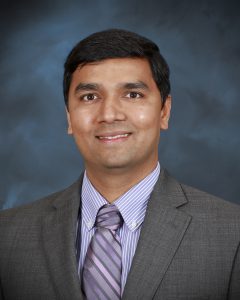 | Dr. Sachin Nimbalkar is the group leader of ORNL’s Energy Efficiency Research and Analysis Group. Dr. Nimbalkar has more than ten years of professional experience which includes working as a R&D Staff at ORNL. Dr. Nimbalkar provides technical support to DOE AMO’s Better Buildings, Better Plants Partners through energy road map development, baselining analysis, in-plant trainings, field visits to investigate feasible measures to reduce process energy requirements. Dr. Nimbalkar assists AMO’s international activities through technical program management support, planning and development of tools and materials. Dr. Nimbalkar held several training workshops and webinars throughout Brazil, China, Costa Rica, India, Turkey, and covering energy efficiency in process heat systems, waste heat recovery from industrial process heating equipment and DOE’s Process Heating Assessment and Survey Tool (PHAST). Dr. Nimbalkar is actively involved in research activities in industrial process heating, waste heat management (reduce, recover, and recycle), smart manufacturing, and water-energy nexus areas. He is also conducting research in life cycle energy and emissions analysis, modeling, and projection of energy efficient technologies and innovative manufacturing processes. Dr. Nimbalkar is an active member of Sigma Xi since 2010. He has achieved the “Qualified Specialist” recognition in using three key DOE energy efficiency software tools – the Process Heating Assessment and Survey Tool (PHAST), the Pump System Assessment Tool (PSAT), and the Steam System Assessment Tool (SSAT). These are comprehensive tools used to evaluate energy savings improvements in pump, process heating, and steam systems. Dr. Nimbalkar received his PhD and M.S. degrees in Mechanical Engineering from Rutgers, the State University of New Jersey. |
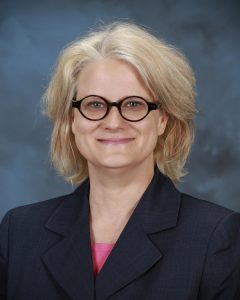 | Gina Accawi has over twenty-five years of experience in the field of software engineering and software architecture. During her tenure at ORNL, her focus has been architecting, developing, and managing teams of developers to deliver software solutions in support of the scientists and engineers at the laboratory. The focus of most of her work is constructing applications to perform energy consumption analysis and make straightforward suggestions or allow side-by-side comparisons to reduce usage. |
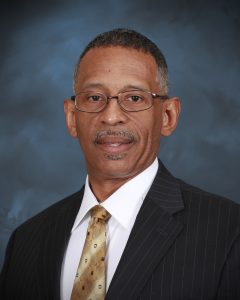 | Daryl Cox has been a member of the research staff at the Oak Ridge National Laboratory (ORNL) since 1990. He has been heavily involved in the analysis of failure characteristics for fluid system components used in commercial nuclear power plants. His current focus is energy optimization efforts in industrial pumping systems and managing interactions with industrial program partners in the Better Buildings Better Plants Program for the Department of Energy Advanced Manufacturing Office. Daryl is a Qualified Specialist and Senior Instructor for the Pumping System Assessment Tool (PSAT) software tool and has conducted training on the tool for over a decade. Daryl is a former member of the ASME Operations & Maintenance Working Group on Air-operated valves and currently co-chairs the codes and standards working group for the development of standards for energy assessment of pumping systems. He holds a BS in Mechanical Engineering from the University of Cincinnati. Mr. Cox is a Certified Practitioner in Energy Management Systems, and an SEP-Performance Verifier. He was formerly employed with the Tennessee Valley Authority, where he served on the corporate staff supporting engineering design for the nuclear power program and environmental qualification of safety-related components. |
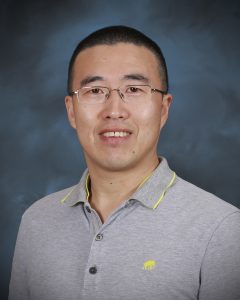 | Dr. Wei Guo is an R&D Staff member within the Industrial Energy Efficiency Team at Oak Ridge National Laboratory. His research area is mainly focused on improving energy and material efficiency for general and special manufacturing equipment and processes. He has been working on smart manufacturing and data analytics, combined heat and power, industrial water management, and recycling and waste management. From Jan 2006 to Feb 2011, he was a research assistant at the University of Arkansas, from which he received his PhD in May 2011. After getting his PhD degree, he worked as an Energy Engineer at an engineering consulting firm on healthcare facilities energy conservation projects. While pursuing his PhD degree, Dr. Guo spent every summer at Arkansas Industrial Assessment Center working on DOE and Arkansas State funded manufacturing plant energy assessment projects. He is an expert on Compressed Air System, Energy Modeling, Energy Performance M&V, chilled water system Hydraulic Modeling for manufacturing plants. He also has extensive field experience on complex air handing units and conventional and heat pump chiller plants. Dr. Guo has published over 15 energy conservation related technical papers and reports. |
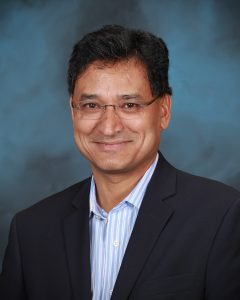 | Dr. Mahabir Bhandari is an R&D Staff member in ORNL’s Whole Building & Community Integration group. He has more than 20 years of experience in the field of building energy performance. He is a LEED™ Accredited Professional Building Design + Construction (BD+C) and National Fenestration Rating Council (NFRC) certified simulator and has actively participated in several LEED™ and sustainability projects and contributed significantly in building energy software product developments. He received his PhD degree at Center for Energy Studies of Indian Institute of Technology, Delhi, India. Prior to joining ORNL, Mahabir worked as a post-doctoral fellow at the Mechanical and Industrial Engineering department of University of Massachusetts, Amherst and Technical Director at DesignBuilder software, USA. In recent years, his focus has been on fenestration research, whole building energy simulation, manual and auto calibration, industrial energy data analysis for energy savings impact, Combined Heat and Power (CHP) deployment analysis, building energy monitoring and performance analysis and the evaluation and integration of energy efficient technologies in buildings. He currently serves on the NFRC and Attachment Energy Rating Council (AERC) Board of Directors. |
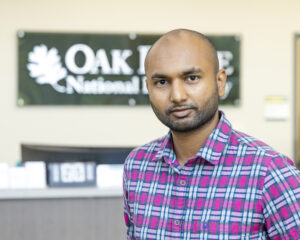 | Kiran Thirumaran is an R&D staff member at Oak Ridge National Laboratory (ORNL) and has been working on industrial energy efficiency since 2012. Kiran is a Technical Account Manager for the Department of Energy’s Better Buildings, Better Plants Program where he works closely with over 15 major companies to assist them in implementing energy management programs and optimizing facilities. Through the Better Plants program, Kiran has lead the development of numerous tools and resources for industry. Finally, at ORNL, Kiran supports several R&D activities in the areas of electrification, energy analysis and water reduction. Previous to ORNL, he was employed with the CLEAResult Consulting Inc., where he served as an energy engineer working closely with various electric and natural gas utilities in the Midwest region, helping them achieve their energy reduction targets through the effective implementation of energy efficiency rebate programs. Kiran holds a Master’s degree in Mechanical Engineering from North Carolina State University where he was heavily involved with his university’s Industrial Assessment Center. While there, he led the IAC team in performing energy audits of manufacturing plants across the Carolinas and Southern Virginia. |
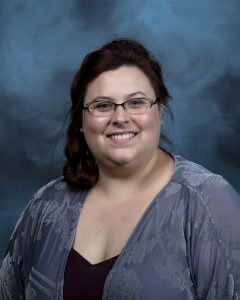 | Kristina Armstrong holds a Bachelor of Science in Chemical Engineering from University of Missouri-Rolla (now Missouri University of Science & Technology) and Masters of Science in Mechanical Engineering from Colorado State University – Fort Collins. For her graduate degree, she focused on alternative energy technologies and materials. Her thesis work combined an overview of the practices of Life Cycle Analysis at the Energy/Waste/Food Nexus with a specific analysis on the life cycle energy implications of combining microalgae growth and wastewater treatment. She has worked at Oak Ridge National Laboratory since September 2015, first in the Center for Transportation Analysis and then with the Energy Efficiency Research and Analysis Group. Her previous work at ORNL included the development of a Fiber Reinforced Composite energy analysis web-based tool and conducting a technology assessment on the status of Wide Bandgap Power Electronics. Her current focus is assisting on the efforts to update the DOE AMO software tools (e.g., PSAT, PHAST, SSMT, EnPI), providing engineering support during development. |
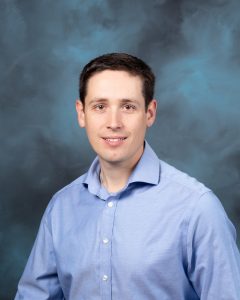 | Dr. Christopher R. Price is an R&D staff member in the Manufacturing Energy Efficiency Research and Analysis Group at Oak Ridge National Laboratory. Chris is a Technical Account Manager for the DOE’s Better Buildings, Better Plants Program Partners where he supports companies to implement energy and water management programs as well as finding ways to cost-effectively optimize facilities. He is also supporting the development numerous tools and resources for industry – including the update of the Better Plants Energy Tracking Guidance. Previous to ORNL, Chris worked with Texas A&M’s Industrial Assessment Center (IAC) on energy efficiency audits and a pilot program for improved tracking of the impacts of energy efficiency measures. Chris received a Bachelor of Science degree from Johns Hopkins University and a PhD from Texas A&M University both in mechanical engineering; during that time, he develop expertise and published numerous articles on component-level control system design for building HVAC systems. |
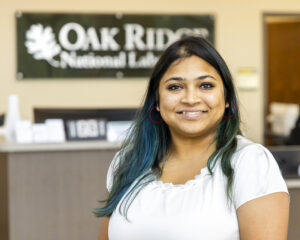 | Paulomi Nandy received her MS in Electrical Engineering from Missouri University of Science and Technology in August,2016. She worked as an energy analyst in Cincinnati, OH for commercial and industrial customers. In her role as a Sr. Building Policy Associate at Midwest Energy Efficiency Alliance (MEEA) she assisted in residential and commercial building energy code compliance study and conducted research on Grid-Interactive Efficient Buildings. She is currently working on her second MS in data analytics. |
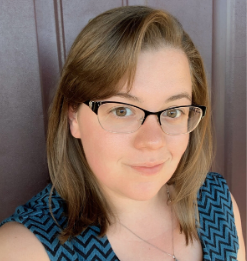 | Alex Botts received her BS and MS in Industrial Engineering from West Virginia University (WVU) in 2017 and 2019, respectively, and a minor in World Music. Her thesis focused on the energy evaluation of twin tower desiccant compressed air dryers. While at WVU, she conducted research with the WVU Industrial Assessment Center as a lead student, where she participated or lead over 40 onsite energy assessments for small to medium industrial facilities and businesses. As a member of the Industrial Assessment Center, her research led her to receive the IAC Annual Student Research Award in 2017 which lead to the advancement of her thesis. While in school she participated in several organizations including the Morgantown Municipal Green Team, World Music Ensembles, Society of Women Engineers, Association of Energy Engineers, Institute of Industrial and Systems Engineer, and Alpha Pi Mu. |
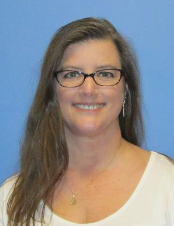 | Jennifer Travis holds a Bachelor of Science in Business Administration from Tennessee Tech University. She’s been working with the Industrial Energy Efficiency Team at Oak Ridge National Laboratory for the past 10 years. Jennifer supports DOE’s Better Plants Program at ORNL by managing the finances and subcontracts, collection and analysis of energy and cost savings data collected from Better Plants partners, as well as provides technical assistance in many other aspects of the program. Jennifer also provides technical support to DOE’s Federal Energy Management Program. Prior to coming to the lab, she was formerly employed at Bed, Bath & Beyond as an Assistant Store Manager and was the Office Manager for the Knoxville Smokies Baseball Team when they were located in Knoxville. |
 | Dr. Blake Billings is an R&D staff member in the Manufacturing Energy Efficiency Research and Analysis Group at Oak Ridge National Laboratory. He is a Technical Account Manager for the DOE’s Better Buildings, Better Plants Program supporting companies to implement energy efficiency and emission reduction strategies. He also supports the development of programs and strategies to specifically support energy and emission intensive industries across the US. Before coming to ORNL, Blake was the lead student and commercial program manager with the Intermountain Industrial Assessment Center at the University of Utah working with facilities in the industrial, commercial and public sectors on energy efficiency audits and air quality improvements. Blake received his BS in chemical engineering from Brigham Young University and his MS and PhD, also in chemical engineering, from the University of Utah. His graduate research and continued interest focus on industrial demand response, utilizing optimization and process models to provide real benefit to the electric grid. |
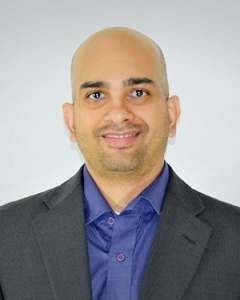 | Subodh Chaudhari is currently an Associate R&D Staff Member & Technical Account Manager for the Better Plants Program at ORNL. He has 15 years of experience in industrial assessments and energy efficiency. His experience ranges from poultry farms to petroleum refineries. He has conducted more than 150 energy assessments in various roles at manufacturing plants and commercial buildings. Prior to ORNL he worked at Hudson Technologies and West Virginia University in various roles providing energy assessments and technical assistance, leading custom engineering projects and energy efficiency support for MBCx and FDD platform customers. Subodh is a Certified Energy Manager (CEM), Engineer-in-Training (EIT), and Certified Practitioner of Energy Management System - CPEnMS (Industrial) for ISO 50001. He is a certified Qualified Specialist in the areas of process heating, steam, and pumps using AMO software tools PHAST, SSAT, and PSAT respectively. He received his M.S. degree in Industrial Engineering from West Virginia University. |
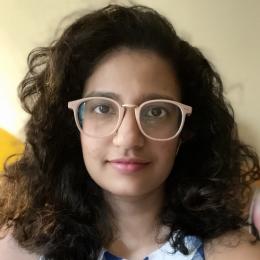 | Dr. Dipti Kamath is a postdoctoral research associate in the Manufacturing Energy Efficiency Research & Analysis Group at ORNL. Dr. Kamath’s research interest has been in sustainable energy systems, circular economy and remanufacturing, and life cycle assessments and techno-economic analysis. In addition to serving as a Technical Account Manager for the Better Plants program, Dipti also works on the techno-economic and life cycle assessment of integrated biorefinery technologies for paper and pulp industries in addition to biomass allocation optimization. Dr. Kamath’s career interests are focused on the techno-economic and life cycle assessment of manufacturing industries, especially in integrating energy efficiency, waste management, and circular economy. Dipti received her Ph.D. in Environmental Engineering with dual major in Environmental Science & Policy from Michigan State University. She received a Master’s of Technology in Environmental Engineering from the Indian Institute of Technology Delhi, and a Bachelors of Technology in Civil Engineering from the University of Calicut. |
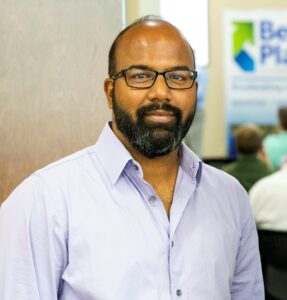 | Senthil Kumar is currently an Associate R&D Staff Member & Technical Account Manager for Better Plants Program at ORNL. He has more than 10 years of experience in energy management of industrial and commercial energy systems and applying BestPractices. Senthil holds a Master’s degree in Industrial Engineering from West Virginia University where he was involved with the University’s Industrial Assessment Center (IAC). While at IAC, Senthil assisted in performing energy audits for small and medium sized manufacturing plants and developed a comprehensive energy analysis tool for the Galvanizing industry. Prior to ORNL, he worked at Hudson Technologies providing energy assessments, technical assistance and leading custom engineering projects. In his Product Lead role at Hudson, he managed Hudson’s MBCx and FDD platform to help customers monitor their energy intensive systems and to identify and implement energy efficiency projects. Senthil is a Certified Energy Manager (CEM) and a certified Qualified Specialist in the areas of process heating and steam. |
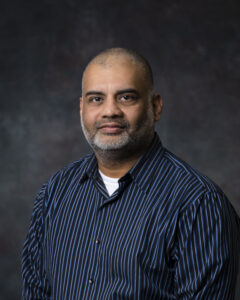 | Aziz Omer is a Software Engineer in Digital Manufacturing and Analyses Frameworks group at the Oak Ridge National Laboratory supporting researchers in software implementation, data gathering and analysis. He has extensive experience in requirements gathering, system analyses, design, development, implementation, testing, system integration, installation, deployment, maintenance, documentation, providing users training and technical support. His work experience includes development of medium to large applications on various platforms, namely desktop, medical device console, client server, web, embedded system, real time data acquisition and monitoring, batch processing and batch printing. |
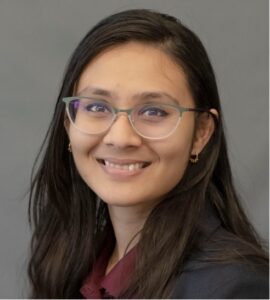 | Naushita Sharma obtained her PhD in Civil, Environmental and Sustainable Engineering from Arizona State University in 2021. She spent two years in the engineering consulting as a Water Resources Engineer at Jacobs Engineering Group in Denver, CO prior to moving to Oak Ridge National Laboratory. Her research focuses on understanding the occurrence and treatment of emerging water contaminants and water quality monitoring relevant to water and wastewater utilities and regulatory agencies. Her research interests lie in working on Water-Energy Nexus, Big Data Modeling and Analysis, Climate Sustainability & Resiliency Planning and Diversity & Inclusion. Her work in the diverse areas has resulted in over 15 peer-reviewed journal articles. In her spare time, she loves spending time in nature through hiking and outdoor adventures, exploring new cuisines and cooking, painting and nerding out on animes. She also has a passion for mentoring and teaching undergraduate and K-12 students. |
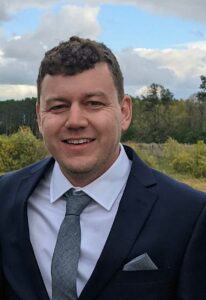 | Mark Root is a Full Stack Software Engineer for Research Application Development (RAD) at ORNL. He has a Bachelor of Science in Computer Science from the University of Nebraska-Lincoln. His primary working role has been to develop a suite of software tools used by the Better Plants program. The MEASUR and VERIFI tools, developed by Mark, are used by the Better Plants program and its partners to find potential energy savings opportunities within a manufacturing facility and to track partner progress towards energy savings goals. |
 | Kalie Miera is a Technical Account Manager and R&D Associate Energy Efficiency Engineer and Researcher at the U.S. Department of Energy’s Oak Ridge National Laboratory (ORNL) where she supports a variety of initiatives including the DOE’s Better Buildings, Better Plants program. Previous to her role at ORNL, she was a Senior Energy Engineer for 3M’s Engineering Organization. In this position, Kalie developed and implemented corporate strategy for Energy Management and Decarbonization of Operations for 200+ global manufacturing facilities. Kalie's work has been recognized through various awards including the Association of Energy Engineers' International Young Energy Professional Award (2023). Kalie obtained her ME degree in Engineering Management and BS degree in Industrial & Systems Engineering from the Rochester Institute of Technology (RIT) and is a Certified Energy Manager (CEM) through the Association of Energy Engineers (AEE). |
 | Ikenna Okeke is an R&D Associate Staff Member in the Manufacturing Energy Efficiency Research and Analysis (MEERA) Group at Oak Ridge National Laboratory. Ikenna received his PhD from McMaster University in chemical engineering with a focus on process systems engineering, energy systems design, modeling, simulation, and optimization — employing techno-economic analysis (TEA) and life cycle assessment (LCA) tools to inform decision making. He has also worked as a Provost Postdoctoral Fellow at the University of Toronto where his research focused on conventional and emerging hydrogen technologies. Upon joining MEERA group, Ikenna supports the development of DOE’s Better Plant software tool which helps U.S. manufacturing sectors to account for their Scope 1 & 2 GHG emissions and ultimately set carbon emissions reduction goals via "What If" analysis. He is also involved in the Industrial Efficiency and Decarbonization Office (IEDO) strategic analysis projects where he conducts technology assessments for electrification — focusing on process heating and water use impacts. Ikenna is part of the Industrial Decarbonization Roadmap Extension Working Groups — providing key contributions to the cement and pulp and paper subsectors. For the office of Energy Efficiency and Renewable Energy (EERE), Ikenna supports the Decarbonizing Energy through Collaborative Analysis of Routes and Benefits (DECARB) projects having played a major role in the just concluded Sprint Study 2A: Cross Sectorial Electrification and Efficiency. Within the DECARB projects, he continues to provide industrial sector support for DECARB Tasks 2 (Demand), 6 (Load Profile), and 9 (FINITO). In addition, Ikenna contributes to projects of other DOE offices namely Bioenergy Technologies Office (BETO), Fossil Energy and Carbon Management (FECM), etc. He is also involved in the Laboratory Directed & Research Development (LDRD) program and collaborates with other research groups within ORNL — supporting research in TEA and LCA. |
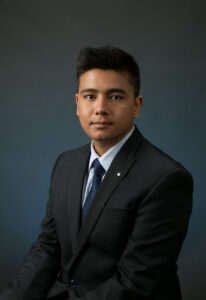 | Indraneel Bhandari is a Technical Account Manager and R&D Associate Staff Member - Renewable Energy and Energy Efficiency in the Manufacturing Energy Efficiency Research & Analysis (MEERA) group at the U.S. Department of Energy’s Oak Ridge National Laboratory (ORNL) where he supports a variety of initiatives including the DOE’s Better Climate Challenge, Better Plants, and Onsite Technical Analysis Program. Indraneel has diverse experience in facility energy assessments through several utility and state sponsored energy conservation incentive programs. Previously, he worked at the University of Illinois Chicago's Energy Resources Center where he conducted feasibility analysis for onsite energy technologies for industrial and institutional facilities, evaluated financial and emissions analysis of electric school buses using bidirectional charging equipment, and studied environmental impacts on photovoltaic modules at agrivoltaics facilities. He also worked as an electrical engineer for Mahindra Susten Pvt. Ltd. where he was part of the team responsible for construction, electrical design execution, and interconnection for utility-scale turnkey PV solar plants. Indraneel holds a Master of Energy Engineering from the University of Illinois Chicago and a Bachelor of Technology in Electrical Engineering from India. |
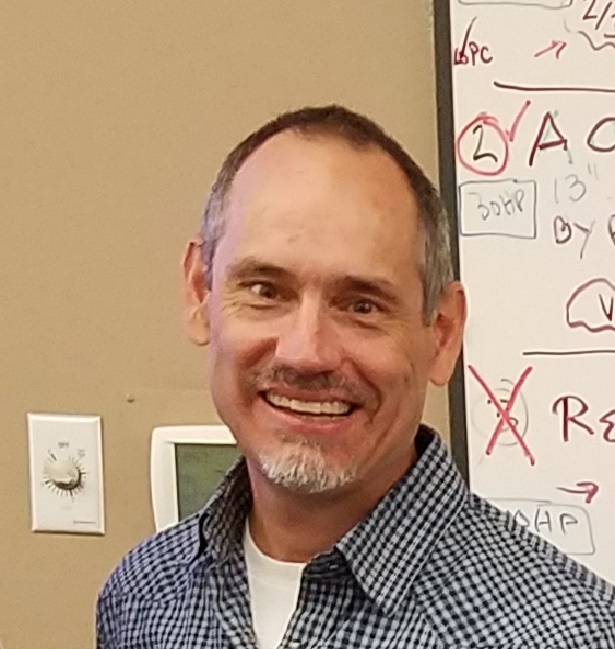 | Paul Lemar has over 30 years of experience in engineering, economic and environmental analysis and modelling of energy efficiency, generation technologies and management practices. For the U.S. Department of Energy, Advanced Manufacturing Office (AMO), he serves as Technical Account Manager for over 20 Better Plants partners, including chemical, paper, plastics, and machinery manufacturers, and multiple water/wastewater utilities. Since 2009, Mr. Lemar has facilitated the development of energy intensity metrics, collection and analysis of data, and assessment of energy performance for the Better Plants program. He has supported AMO’s Combined Heat and Power (CHP) technology development for over 20 years, and recently completed modelling of advanced combined heat and power systems for a published study of flexible grid support for California’s electricity market. Over the past 7 years, Mr. Lemar has also been the principal author of the District of Columbia’s Small Generator Interconnection Rules, which govern how renewables and other customer-sited generators interconnect with the grid. He holds Mechanical Engineering and Master of Business Administration degrees from the University of Maryland. |
 | Leslie Jones is a communications professional with over 13 years of experience helping organizations tell their stories in ways that connect audiences with complex ideas. Leslie obtained her B.A. in Communications from James Madison University, and her M.A. in Geographic Studies from George Washington University where she studied sustainability and resource management. She began her career in nonprofit and public-sector communications, eventually leading high-profile campaigns for the U.S. Environmental Protection Agency’s ENERGY STAR program. There, she served as both content strategist and on-record spokesperson—translating technical insights and energy efficiency best practices into compelling stories that reached millions of Americans through outlets like The Washington Post and Time. Her career path has taken her from food safety to climate action to clean energy, with a common thread throughout: making technical information accessible and inspiring to diverse audiences. Leslie has managed digital campaigns, advised senior leaders, mentored creative teams, and built content strategies that expand reach while maintaining integrity. Now, she brings this experience to Oak Ridge National Laboratory, supporting the Manufacturing Energy Efficiency Research and Analysis group in communicating research and innovation that can transform the energy and industrial sectors. |
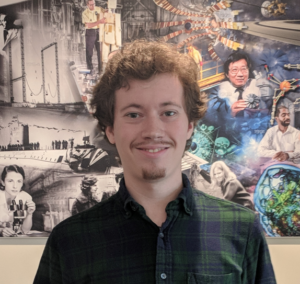 | Miles Nevills is a postdoctoral research associate and Technical Account Manager for the Better Plants Program at ORNL. He has 4 years experience in industrial energy auditing, assessing 40 separate manufacturing facilities and implementing a total of ~20,900,000/kWh/yr savings. Miles obtained his Ph.D. in Mechanical Engineering at Tennessee Technological University where he obtained his energy auditing experience at the TTU Industrial Assessment Center (IAC). During these assessments, Miles became proficient in the usage of a variety of energy data monitoring equipment. His research focuses on air compressor energy efficiency and nanoadditive strategies. |
